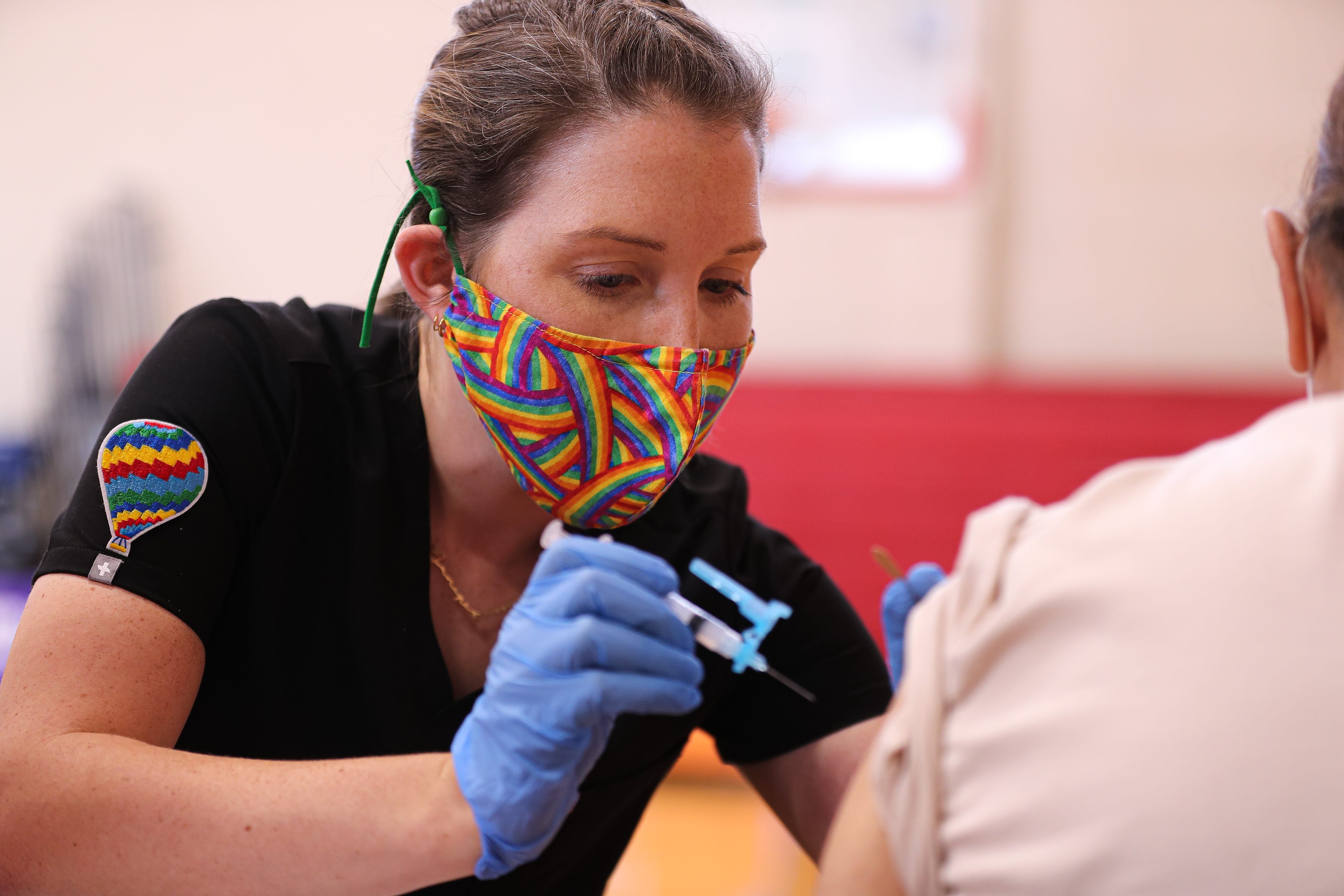On Sunday, a DJ playing pop music stood in front of the Givens Recreation Center gym in East Austin. One wall of the room was lined with colorful tables with rainbow flags and other freebies. However, three tables in the center of the room offered a different type of freebie: COVID-19 vaccination.
The vaccine clinic was made possible by a collaboration between Facebook Austin, Austin Public Health, and Austin Black Pride, and the event included a Pride celebration for LGBTQ community members as well as free HIV and sexually transmitted illness testing.

Vaccine For Underprivileged Group
According to JP Cardenas, director of health and wellness for Austin Black Pride, the event sought to make vaccines easily available to the area’s underprivileged groups.
“We’ve found that in the LGBTQ population, there are simply naturally larger health inequalities that we deal with, as well as a heritage of prejudice,” Cardenas said. “We wanted to be able to give a safe environment, a space that was just ours, where they could come and be themselves while still having people around who could teach, educate, and encourage them along the process.”
Drop Of Demand
Organizers hoped to deliver 300 doses of the Moderna vaccine on Sunday as part of Facebook’s larger commitment to assist countrywide immunization efforts. By 3 p.m., almost 60 individuals who had lined up for vaccinations had yet to arrive, indicating a drop in demand for the vaccine in Central Texas and throughout the country.
Mission of Facebook
According to Jasmine Vallejo, a Facebook Austin spokesperson, the event is part of Facebook’s global mission to vaccinate 50 million people. Facebook has developed a geolocation tool to assist people in locating vaccination locations in their region.
Six months before the COVID-19 pandemic, Facebook had over 1,200 workers in Austin and was on a hiring binge when it established a second facility. Austin has evolved to be Facebook’s fourth-largest center, with over 2,000 workers working across more than 100 teams.
The business intends to continue collaborating with groups in cities where Facebook is present.
“They know the neighborhoods the best,” Vallejo said of local organizations like Austin Black Pride and Austin Public Health. “They know the people who are disproportionately affected by COVID-19, so how can Facebook help them?”


